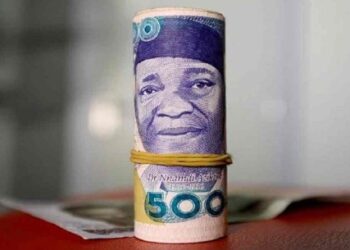Nigerian consumer stocks are struggling through a “lost year” as a slump in oil prices buffets Africa’s largest economy, according to Renaissance Capital Ltd.
Fuel shortages are making it harder to distribute goods as companies including Guinness Nigeria Plc, Nestle Nigeria Plc, and Unilever Nigeria Plc grapple with a slowing economy and weaker local currency, said Benjamin Samuels, head of equities at the Moscow-based investment bank that focuses on emerging markets. Investors will also shun the country’s banks until there’s more clarity on how they’re responding to the risk of higher defaults because of lower crude prices, he said.
“Some see 2015 as a lost year for growth and margins” in consumer stocks, he said in an interview in Lagos, Nigeria’s biggest city, on May 18. “The cost of imports has gone through the roof with the decline of the naira,” Samuels said. Companies are facing “challenges around distribution and weaker sales,” he said.
Growth slowed to 4 percent in the first quarter from 5.9 percent in the last three months of 2014. Africa’s biggest crude producer, which derives 90 percent of export earnings from oil, has been hit by the Brent variety’s 40 percent drop since June. The naira has depreciated 19 percent against the dollar over the past 12 months.
Nigerians have faced long queues for fuel in recent weeks in a country that relies on imports to meet more than 70 percent of domestic needs. While the government guarantees cheaper fuel by subsidizing gasoline, it’s struggling to pay marketers the difference between the landing price of refined oil and the fixed domestic rate as low crude prices deplete revenue.
Investors Wary
Nestle’s net income fell 51 percent to 2.95 billion naira ($15 million) in the first quarter from a year earlier. The stock has lost 18 percent in the last 12 months, while Guinness’s shares are down 11 percent and Unilever’s 8.2 percent.
Consumer stocks still look expensive compared with the rest of the Nigerian Stock Exchange All Share Index, Samuels said.
“Some consumer names are trading at 20 to 30 times earnings,” he said. “They’re not cheap. If you’re buying a stock with a high price to earnings ratio, you’re likely taking a bet on 2016 and 2017.”
The benchmark index fell 0.2 percent by 1:05 p.m. in Lagos, bringing its decline over the past year to 12 percent. International investors are wary about banks’ loan books, Samuels said. Oil companies accounted for 25 percent of lending in Nigeria last year, Lagos-based Vetiva Capital Management Ltd. said in December.
Tanzania Attractive
“It’s rare not to have challenges with asset quality when you have declines in oil and the currency of the magnitude and speed we’ve had in Nigeria,” Samuels said.
While trading volume has risen since Muhammadu Buhari defeated presidential incumbent Goodluck Jonathan in March, central bank curbs on foreign-currency dealing, designed to bolster the naira, have helped keep it low, Samuels said.
Foreign-exchange “liquidity does have to improve for equity investors to get more comfortable,” Samuels said. “Once we see the new cabinet, oil rallying off a low point and a stable currency, liquidity can pick up significantly, hopefully well above the current $25 million a day.”
Former military ruler Buhari, 72, takes office on May 29. Some investors who pulled out of Nigeria bought into East African shares. Tanzania looks attractive after lifting controls that prevented foreigners from owning more than 60 percent of companies on the Dar es Salaam Stock Exchange in September, Samuels said. RenCap, owned by billionaire Mikhail Prokhorov, covers one stock in the country, Tanzania Breweries Ltd.,
and wants to add more this year. The main index in the country has rallied 52 percent in the past 12 months.
“Liquidity is improving in Tanzania,” he said. “Investors are going in.”
Source: Bloomberg



















